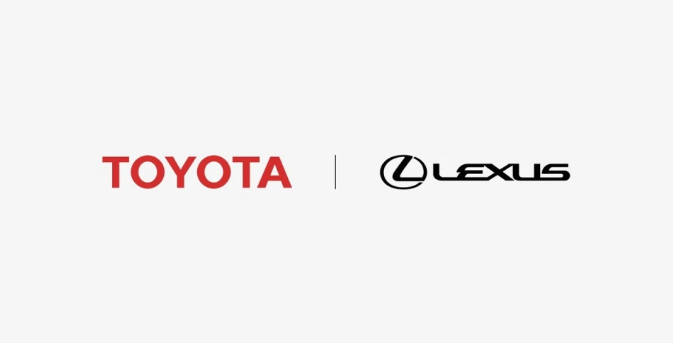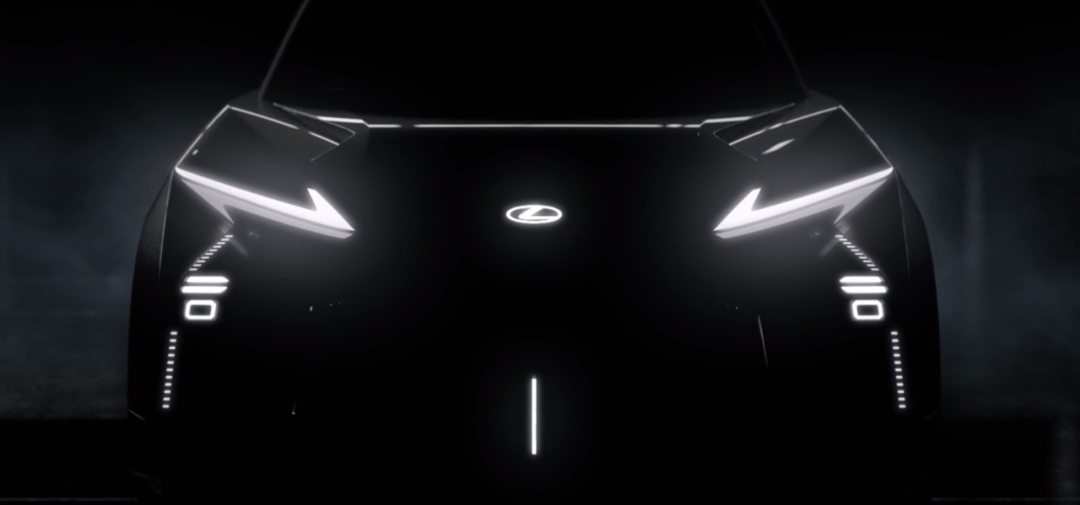Lexus: Can It Become Shanghai's Second Tesla?
![]() 02/18 2025
02/18 2025
![]() 673
673
A risky bet, or impeccable timing?
The "Tesla model" is being replicated.
Recently, Toyota announced its plans to collaborate with Shanghai to establish a wholly-owned Lexus pure electric vehicle and battery R&D and production company in Jinshan District. Leveraging Shanghai and the Yangtze River Delta's advanced industrial chain, logistics network, talent system, and substantial market scale, the new venture aims to develop pure electric Lexus models, with production set to commence in 2027.
This milestone signifies that Toyota will soon follow Tesla's footsteps as the second automaker to establish a wholly-owned factory in China.

Image source: Lexus
Over the past decade, rumors of Lexus localizing its production have persisted, with Toyota maintaining a cautious stance. However, this time, the locally produced Lexus is indeed on its way.
Is this the ideal time for localization?
Lexus, a luxury automotive brand under Toyota Motor Corporation, entered the Chinese market in 1994 and officially established a franchised dealership network in 2005, selling imported vehicles. Over the past two decades, Lexus has garnered a significant and loyal fan base in China.
As the Chinese automotive market flourished, numerous foreign automakers localized their production through joint ventures with Chinese counterparts. Despite several rumors, Lexus's localization never materialized.
In December 2024, news broke that Toyota Motor Corporation would build a wholly-owned Lexus factory in Shanghai. At the time, Lexus China responded that it was unofficial news and declined to comment. However, the news was soon confirmed. As a pivotal step in Toyota's electric transformation, the factory will produce pure electric models, not the gasoline models widely recognized by consumers.
Currently, joint ventures and foreign brands are under considerable pressure in the Chinese market. Even Toyota, which has performed well globally, has witnessed a decline in sales in China. Data reveals that in 2024, Toyota's sales in China amounted to 1.776 million units, a 6.9% year-on-year decrease. While Lexus sold 181,900 units in 2024, it struggles to regain the 2021 high of 220,000 units.
Concurrently, China's imported car market continues to shrink. According to the China Passenger Car Association, 2024 saw the lowest sales in nearly 15 years, with only 700,000 units sold. This represents a halving of the market's peak size, which is unfavorable for Lexus.
Moreover, Japanese luxury brands have encountered significant challenges in China in recent years. Among the three major Japanese luxury brands, Acura has exited the Chinese market, Infiniti has been largely forgotten, and Lexus has become the lone hope for Japanese luxury car brands in China.

Image source: Lexus
Amidst market transformations, electrification and intelligence are emerging as new growth areas in the automotive sector. Toyota Motor has announced plans to offer pure electric versions of all Lexus models by 2030, with 100% of sales in China, North America, and Europe being pure electric, aiming for global sales of 1 million units.
To achieve this goal, leveraging the Chinese market is inevitable. In 2024, global new energy vehicle sales surpassed 17.5 million units, while China's new energy vehicle production and sales reached 12.888 million and 12.866 million units, respectively, marking year-on-year increases of 34.4% and 35.5%. China has long been a fertile ground for smart electric vehicles.
Can it replicate the "Tesla model"?
Tesla's wholly-owned factory and its success have always been a focal point of industry discussions.
Around 2018, facing challenges like "production hell," Musk even prepared for Tesla's bankruptcy. At a crucial juncture, China came to Tesla's rescue with policies such as relaxed shareholding ratios, allowing 100% foreign ownership, and tax incentives. Tesla's Shanghai Gigafactory officially broke ground and commenced production in 2019. In 2020, Tesla's sales in China soared to 148,000 units, making it the electric vehicle sales champion in the Chinese market that year and achieving the company's first annual profit since its inception. By 2024, Tesla's sales in China reached approximately 657,000 units, a year-on-year increase of 8.8%, accounting for nearly 40% of Tesla's total global sales. The models produced at Tesla's Shanghai Gigafactory include two models, with the locally produced Tesla Model Y remaining at the top of the SUV sales chart four years after its launch, selling 480,000 units in 2024, and the cumulative sales of Model 3 reaching 177,000 units.
Establishing a wholly-owned factory in China enabled Tesla to make a remarkable comeback. Simultaneously, the full competition brought by Tesla has completely revitalized China's new energy vehicle market. It can be said that Tesla and China's new energy vehicle market achieved a "win-win" situation through this collaboration.
Although late, Lexus's localization still holds several advantages compared to Tesla's initial localization in China.
In 2024, Lexus's sales in the Chinese market exceeded 180,000 units, making it the only luxury imported car brand to achieve positive growth. This indicates a high degree of recognition for the brand itself in the consumer market. Localization can reduce costs and make product prices more competitive, helping Lexus gain a favorable position against luxury brands like BBA, Cadillac, and Volvo, as well as domestic new energy brands.
Furthermore, with the rapid development of China's new energy vehicles, a mature automotive industry chain has emerged in Shanghai and its surrounding areas, which will accelerate Lexus's electric transformation.
As a luxury brand under Toyota, Lexus boasts a high brand positioning and a solid reputation for quality, known for its reliability and low failure rate. Consumers have a high degree of recognition for its brand, and Toyota's production and quality control experience will help Lexus maintain its quality reputation post-localization.
Nevertheless, replicating Tesla's success is not an easy feat.
From a policy perspective, while Tesla once enjoyed "super-national treatment," current foreign investment policies emphasize technology spillovers and supply chain control. Lexus must prove it can drive local R&D or employment; otherwise, it will struggle to obtain the same level of support. It is understood that Toyota will invest 5 billion yuan this time, with an initial annual production capacity of around 100,000 units, expected to create about 1,000 new jobs. Compared to Tesla's substantial investment of 50 billion yuan, this investment is modest, aligning with Lexus's traditionally conservative style.
From a technical standpoint, Lexus has long relied on hybrid technology, and its pure electric models have not been well-received in the market. It remains uncertain whether it can swiftly tap into the pure electric market and secure a place. In terms of supply chain restructuring, Tesla achieved rapid cost reduction through localization, whereas Lexus needs to detach from Toyota's global supply chain system and establish a dedicated local electric vehicle supply chain, particularly in key areas like batteries and electric controls, which may be constrained by Toyota's decision-making speed.
Additionally, when Tesla established its factory, China's new energy vehicle market was in its nascent stages of explosion, with relatively little competition. Today, China's new energy vehicle market is a mature and highly competitive landscape dominated by local brands. Lexus, which will not commence production until 2027, will inevitably face a more intricate competitive environment. It is also uncertain whether Lexus, long positioned as an "imported luxury" brand, can maintain its brand tone post-localization.
The success of Lexus's localization journey may not become evident until at least 2027.







